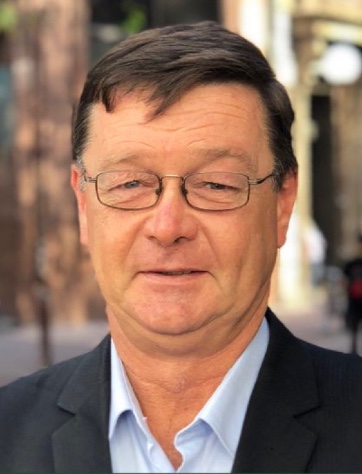When a liquidator’s relying on Assetless Administration funding (AAF), iNO always salts with skepticism any criticism of how that liquidator has conducted litigation the regulator’s funded. After all, if ASIC can find a way to make a liquidator’s life difficult, it will.
That does not of course mean it is ASIC’s fault that in the case of Lloyds Curry Shop Pty Ltd (In Liquidation) (Lloyds), liquidator Dave Hurst had to apply for leave to adduce further evidence in respect of two interlocutory applications heard by the Federal Court earlier this year.
“The further evidence that the applicants seek leave to adduce is, in the main, not new evidence, in the sense that it was in existence before the April hearing. It is evidence that was available – indeed, publicly available – and which, with even moderate diligence, could readily have been served prior to the hearing of the interlocutory applications.” Justice Elizabeth Cheeseman.
The first interlocutory related to an application to extend freezing orders. The second involved challenging asset disclosure statements provided to the court by various respondents currently subject to those freezing orders.
Decisions in respect of the two interim proceedings were reserved but Hurst then sought leave to adduce fresh evidence after uncovering information which, according to Federal Court judge Elizabeth Cheeseman, could and should have been included initially.
“The further evidence that the applicants seek leave to adduce is, in the main, not new evidence, in the sense that it was in existence before the April hearing,” the judge said.
“It is evidence that was available – indeed, publicly available – and which, with even moderate diligence, could readily have been served prior to the hearing of the interlocutory applications.”
That information, if correct, would appear to contradict the asset disclosure statements provided to the court in these proceedings by Sam Cassaniti, David Cassaniti and Carmelo Duardo, who are the third, fifth and sixth respondents respectively. iNO makes no suggestion of wrongdoing. We all know how hard it can be to keep abreast of one’s assets.
In Hurst, in the matter of Lloyds Curry Shop Pty Ltd (in liq) v Prasad (No 2) [2022] FCA 1133 Justice Cheeseman relates how prior to the first interlocutory application in early February 2022, Hurst’s lawyers, Gavin Parsons & Associates undertook various searches of the Cassanitis and Duardo including current and historical land title searches; current land title searches; and personal name extract searches.
At the time in February when they were undertaken the searches did not show that either of the Cassanitis held real property in their individual names, whether alone or jointly with any other entity or person.
The searches did however reveal that Sam Cassaniti was, at that time, the current director and secretary of nineteen companies, including Mount Hunter NSW Pty Ltd, Goodman Court Pty Ltd, Raptor Collections Pty Ltd, Sheffield (Tas) Pty Ltd and Celera Pty Ltd.
“Critically, the searches revealed that Sam Cassaniti was the sole shareholder of Mount Hunter, Goodman, Raptor, Sheffield and Celera; and that David Cassaniti was the sole shareholder of Whistledixie Pty Ltd,” Justice Cheeseman said.
And this is where it gets messy.
“Upon receiving this information, the solicitors for the applicants did not undertake any further searches directed to ascertaining whether the relevant companies associated with the Cassanitis held property interests which may fall under the description of being under the control of the Cassanitis and arguably within the reach of the asset disclosure orders,” the judge said.
“No such searches were undertaken by the applicants (Hurst) in respect of these companies before the hearing of the extension application.
“That was so, notwithstanding that the applicants: (1) recognised that they bore the onus on the application to extend the freezing orders, and (2) invited the Court at the hearing of the extension application to conclude that the Cassanitis had not, in their respective asset disclosure affidavits, complied with the disclosure obligations imposed on them by the asset disclosure orders.”
As her honour goes on to point out, various of the companies controlled by Sam Cassaniti as sole director and shareholder are the registered proprietors of real property located in NSW and Tasmania with a combined value of almost $15 million.
Contrast this with his asset disclosure statement – provided to the court on September 1, 2021 – which listed $90.15 held in his personal bank account; $53.27 held in a joint bank account shared with his partner; unspecified remuneration paid to him on a weekly basis; and his personal effects.
Given that the judgments are still reserved, the new evidence is potentially significant and the respondents pointed to no prejudice they’d suffer her honour reluctantly granted the leave to adduce that Hurst sought. Costs were reserved.



Incredibly inept of Gavin Parsons & Associates. Doing property searches in the company names is such a basic step. I hope their professional indemnity insurance is up to date.